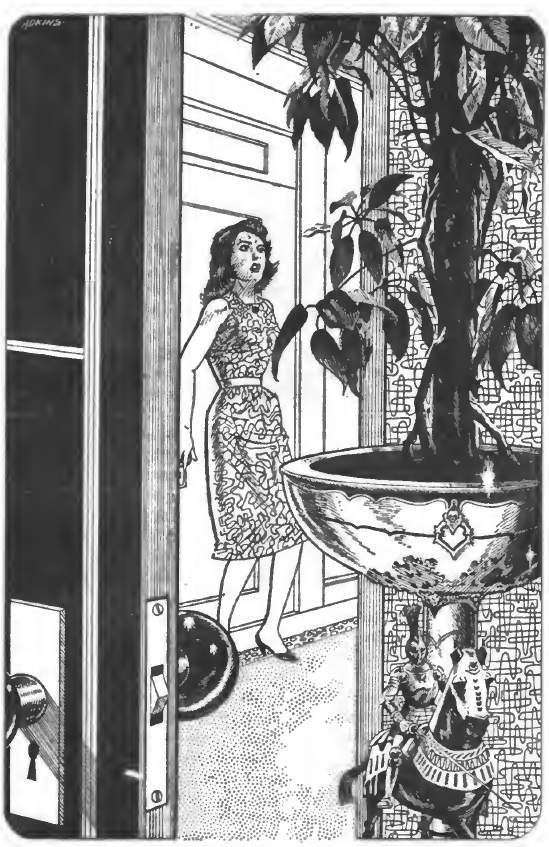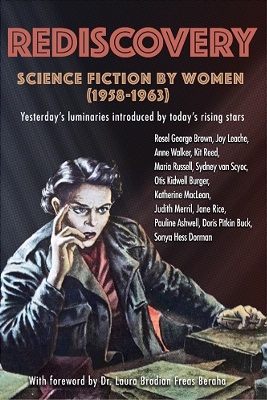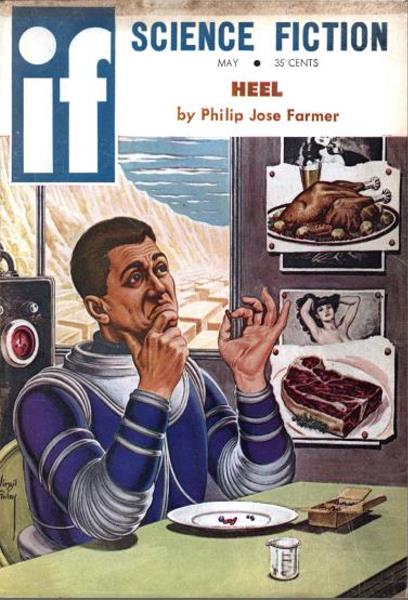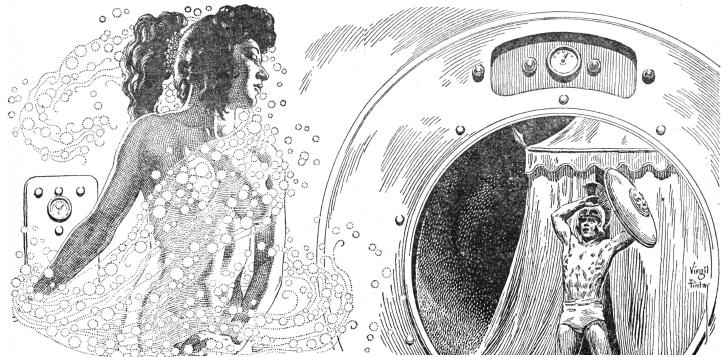
by Gideon Marcus

It's been almost two years since the last edition of ourThe Second Sex in SFF series came out. In that time, women have only gotten more underrepresented in our genre. Nevertheless, new women authors continue to arrive on the scene, and some who produced under gender-ambiguous names have become known to me:

Bailey, a British writer whose name does not immediately bespeak a woman writer, marched onto the scene in 1963 with her laudable social satire story, Breakdown, in New Worlds, followed by her stand-out novella, The Fall of Frenchy Steiner, the following year in the same magazine.
She is one of the very few women to appear in British science fiction magazines. She has also been married, since 1962, to fellow SF writer, Michael Moorcock, who is now editor of New Worlds.

Though the SF career of Michiganian J. Hunter Holly began in 1959 with the novel, Encounter, she did not get included in prior installments of this series for two reasons. Firstly, I was not aware that Holly was a woman until a fellow fan noted that the author's real name is Joan Carol Holly. Secondly, like Andre Norton (another woman author with a male pseudonym) Holly doesn't do magazine fiction. Indeed, it wasn't until the aforementioned fan sent me a C.A.R.E. package of Holly books that I realized she's already had quite a career in the genre!
I've only reviewed her most recent book, The Time Twisters. It's a flawed piece, plot-wise, but Holly's quite a good writer. I'll have to finish her back catalog in my copious spare time — and I look forward to her next release!

Alice Martha Lightner Hopf is another author whose gender disappears behind initials. She tends to be a children's writer: two of her first three short stories appeared in Boy's Life and her first three novels are also aimed at younger audiences. She also has written a nonfiction book called Monarch Butterflies under the name of Alice Hopf.
But I know of her because her short story, A Good Day for the Irish, which appeared five years ago in IF. A fair story, it stood out for being one of the very few that featured a female protagonist.
I'm keen to see if Lightner Hopf will return to the mature mags, or if she's found her niche just beyond my usual ken. Either way, I wish her success!

Some authors erupt onto the scene with a bang. We saw it with Ursula K. LeGuin in 1962 with her debut, April in Paris in Fantastic. Similarly, New Yorker Randall knocked it out of the park with her first two stories, One Long Ribbon and The Barrier Beyond. Like LeGuin, her first was published in 1962, and both stories came out in Fantastic — until recently, a magazine helmed by the only woman editor, Cele Lalli (ne Goldsmith).

Some authors become associated with a particular series. Jane Beauclerk, who has appeared twice in F&SF, is likely to be remembered for her Lord Moon stories. These are almost fairy-tale pieces that take place on an unnamed planet at the edge of a Terran empire.

Last but not least is Juanita Coulson. At first glance, Ms. Coulson has no published short stories or novels in any genre. So why does she get included here?
Firstly, she is one of fandom's brightest lights, producing the fanzine Yandro with her husband, Robert, since 1953. The 'zine has been on the Hugo ballot since 1957, and I suspect it's got a good chance at the rocketship this year. Moreover, it turns out she does have at least a partial story credit: Another Rib is a four-star story that came out in F&SF in 1963. Though it was published under the byline of "John Jay Wells" (and apparently co-written with the now persona non grata Marion Zimmer Bradley), I have since confirmed that Wells is actually Coulson.
Will "Wells" return? Will Coulson flower in the pro arena under her own name? Will Yandro finally win the Hugo this year? Only time will tell…
——
When I began this list, we were in medias res with the careers of most of the women writing science fiction. Now that we are covering new authors, it's impossible to tell which of those profiled will end up brilliant genre lights and which will simply fade away after a brief, bright career. In addition to introducing recent writers in this series, future editions will cover dramatic changes in the careers of previously profiled authors.
I look forward to the day that women make up more than 10% (at best!) of the content printed in science fiction magazines. Until then, it's important to remember that there are still dozens of women producing some of our best stories. I hope this series helps bring that fact into public consciousness.
[If you're looking for more great science fiction by women, Rediscovery: Science Fiction by Women (1958-1963) contains 14 of the best stories of the Silver Age.
Pick up a copy! It'll support your local bookstore.


![[Apr. 16, 1965] The Second Sex in SFF, Part VIII](https://galacticjourney.org/wp-content/uploads/2020/04/650416cover-521x372.jpg)


